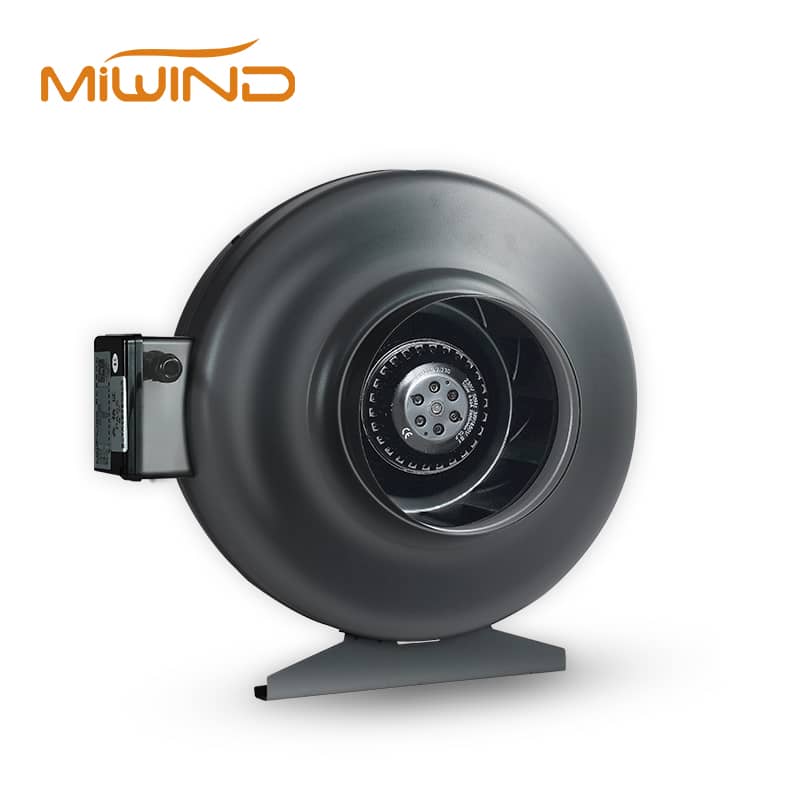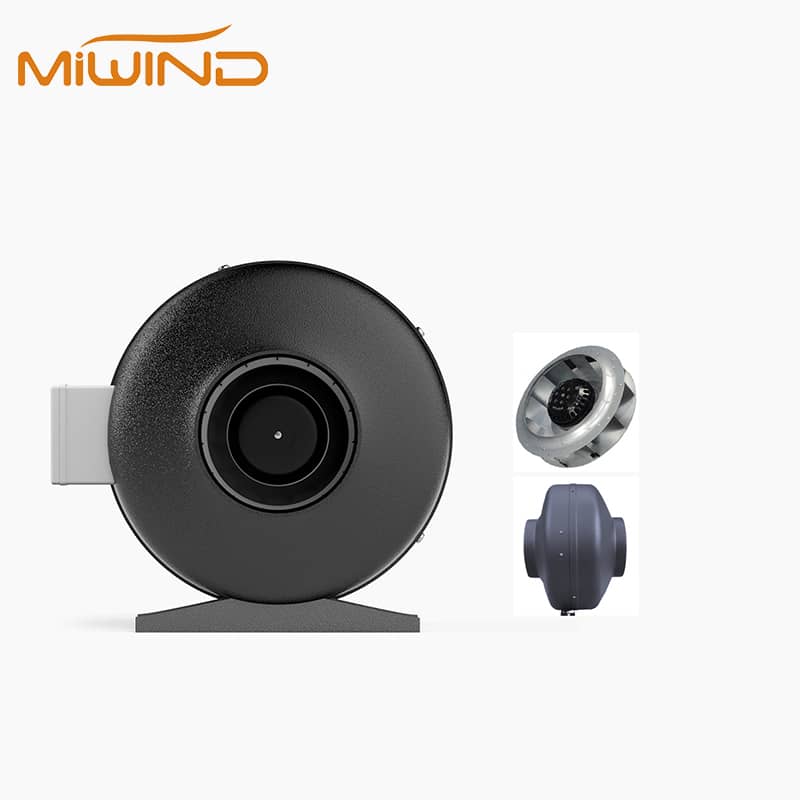
In the HVAC (Heating, Ventilation, and Air Conditioning) industry, achieving optimal airflow is essential for maintaining comfort and energy efficiency. Among the various solutions available, circular inline duct fans and circular duct fans have gained popularity due to their unique design, efficiency, and versatility across residential, commercial, and industrial HVAC systems. This article focuses on the advantages of circular inline duct fans, highlighting their efficiency, versatility, and suitability for a range of applications.
Circular inline duct fans, often referred to as circular duct fans, are specifically designed to be installed within the ductwork of HVAC systems. Their cylindrical shape streamlines airflow and reduces turbulence, making them ideal for boosting ventilation efficiency in both long and complex duct runs. Their cylindrical shape allows for streamlined airflow, which significantly reduces turbulence and enhances overall efficiency. These fans are engineered to provide powerful airflow while maintaining a compact size, making them an ideal choice for various environments.
One of the primary advantages of circular inline duct fans is their ability to maximize airflow efficiency. The circular design of circular inline duct fans minimizes friction losses, while circular duct fans also provide smooth airflow in standard duct setups, ensuring optimal performance across residential, commercial, and industrial applications. This efficient airflow is particularly beneficial in systems that require high static pressure or long duct runs, where traditional fans may struggle to maintain adequate performance.

Both circular inline duct fans and circular duct fans are suitable for a wide range of HVAC applications, making them versatile solutions for homes, offices, industrial spaces, and public buildings. They can be used in:
Residential HVAC Systems: Ideal for enhancing airflow in homes with complex duct layouts, ensuring consistent temperature distribution throughout living spaces.
Commercial Ventilation: Effective in restaurants, offices, and retail spaces where maintaining air quality is crucial for comfort and health.
Industrial Settings: Commonly employed in exhaust systems in factories or warehouses to efficiently remove heat, humidity, or airborne contaminants.
Noise reduction is a significant consideration when selecting ventilation equipment. Circular inline duct fans are designed to operate quietly due to their efficient blade design and advanced motor technology. Many models feature insulated casings and vibration-dampening mounts that further reduce sound levels during operation, making them suitable for noise-sensitive environments.

As energy costs continue to rise, the efficiency of HVAC systems has become increasingly important. Circular inline duct fans and circular duct fans typically consume less power than traditional fans while delivering higher airflow rates. Their energy efficiency makes them ideal for cost-conscious residential and commercial projects. This energy efficiency translates into lower utility bills and a reduced carbon footprint, making these fans an environmentally friendly choice for both residential and commercial applications.
The installation process for circular inline duct fans is straightforward due to their compact design. They can be mounted in various orientations within the duct system, offering flexibility in different configurations. Additionally, many models are designed with easily accessible components that simplify maintenance tasks such as cleaning and servicing, ensuring long-term reliability.
By effectively circulating air throughout a space, both circular inline duct fans and circular duct fans contribute to improved indoor air quality, reducing pollutants and maintaining consistent ventilation in homes, offices, and industrial facilities. They help eliminate stale air and distribute fresh air evenly, reducing the concentration of indoor pollutants and allergens. This is particularly important in environments such as schools, hospitals, and workplaces where air quality directly impacts health and productivity.
Many modern circular inline duct fans can be integrated with smart control systems that allow users to adjust settings based on real-time needs. This feature not only enhances comfort but also optimizes energy usage by adjusting fan speed according to occupancy levels or specific environmental conditions.
Circular inline duct fans duct fans offer a multitude of benefits, making them excellent choices for maximizing airflow efficiency in residential, commercial, and industrial HVAC applications. Their unique design, energy efficiency, low noise operation, and versatility make them essential components for modern ventilation systems. Their ability to enhance airflow efficiency, versatility across different settings, low noise operation, energy savings, ease of installation and maintenance, improved indoor air quality, and compatibility with smart controls position them as a superior solution in the ventilation landscape.
As building designs become more complex and energy regulations tighten, integrating circular inline duct fans into HVAC systems will play a vital role in ensuring optimal indoor comfort while minimizing operational costs. By understanding these advantages, homeowners and facility managers can make informed decisions that contribute to both comfort and sustainability in their environments.